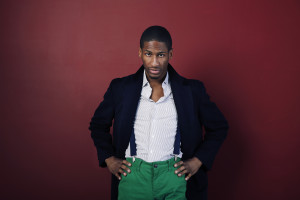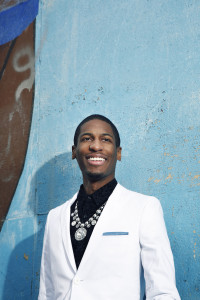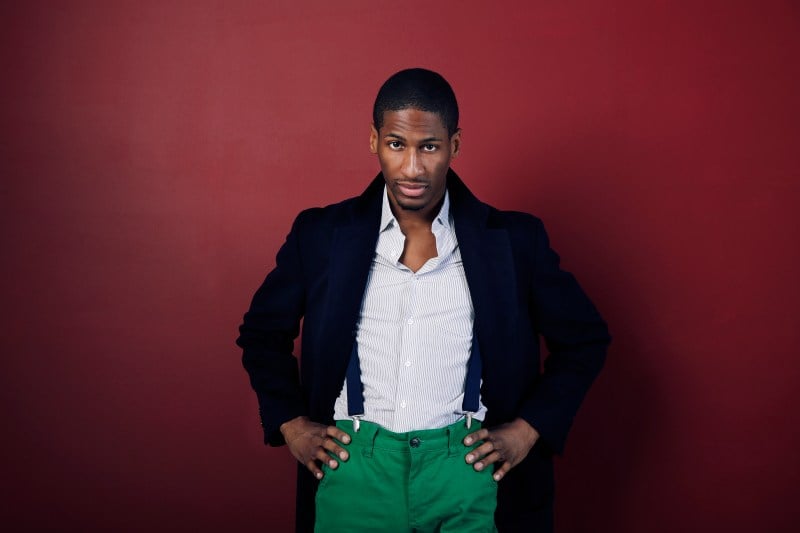On October 27, jazz pianist and vocalist Jon Batiste performed at Big Concert Hall, bringing his sultry voice and musical magic to the Farm. Batiste, who has worked with such artists as Cassandra Wilson, Prin

ce, Quest Love and Lenny Kravitz, is currently touring with his latest band, Stay Human. Daily columnist Angelique Dakkak sat down with Batiste earlier this week to chat about his New Orleans roots, the inspiration behind his band’s name and his musical vision.
The Stanford Daily (SD): How do you feel about performing at Stanford and what will you be playing for the concert?
Jon Batiste (JB): I love performing at colleges because there is a special bond between members of my generation and the kind of performance I am putting on. For me, music is going to be social music. There is this beautiful interactive environment that music creates can create that leads to open experiences. My group makes sure that there are moments where the audience can participate, moments where people can come on stage, even non-musicians – the goal being to bring everyone together.
In terms of Stanford as a performance space, every space has something that I can exploit for vibration; there is always something to learn and to figure out about a new concert venue. It all comes down to the power of a live music experience that comes in the form of a universal language of music that everyone can admire and use for their own self-expression.
SD: How did the name of your group, Stay Human, come about?
JB: The name came in a special moment during a performance in New York City. I reflected on how we would perform in subways and I realized that this title is what my group is all about. This era is interesting because of the involvement of technology, but the negative aspect is that technology is overshadowing everything else.
One day I was asked by a man if Stay Human was against technology. I said that we needed technology for recording one of our albums in the subway. Technology is inevitable and has been so useful for integration, inclusiveness, and improved ways to communicate with one another. The person asking me this was forgetting the power of human exchange with technology.

SD: What genre(s) do you play in and what made you gravitate toward them?
JB: Growing up in New Orleans, I was always surrounded by this distinct sound and rhythm. I was part of a musical family growing up and played in some shows with them, and the focus was on Jazz.
SD: Who have you played with in the past and what are some unique experiences that come to mind?
JB: I have played different genres and have played with Cassandra Wilson, an artist I admire, and other great musicians. In my work, I learned different lessons from different artists, and outside of jazz I have performed with Prince, Quest Love, and Lenny Kravitz
SD: How does the idea of ‘social music’ define your new album, and what do you hope that this new album will achieve for your career and today’s music?
JB: Today is more connected and integrated than ever before. Internet and technology with things like Spotify and iTunes are being used for genre hopping, whether you are or are not aware of it. As everything is becoming more united, social music grows as the complete connectivity and openness that destroys generation gap boundaries. Social music promotes inclusiveness and openness to all.
SD: One of your songs, St. James Infirmary, touches on a very sensitive topic and brings back memories for me of Hurricane Katrina. Why did you include this jazz standard on the album and what is your perspective on it?
JB: St. James Infirmary has become a NOLA standard. 1778 in London is the year of its origin. It is so old that no one knows who wrote it. Using elements of blues, folk music, and jazz, my purpose was to use this standard as a continuum. Even with this much time passing, we are coming as humans but come all as one human soul.
SD: Which piece on your album was most challenging to compose? Which piece affected you the most emotionally and which piece provided the greatest challenge for performing live?
JB: “Express Yourself” provides great performing live challenge because it was routed in the idea of programming. All of the other tracks were as simple as only one take in the studio. “Express Yourself” was so focused in programming that it was hard to lay down all of the parts.
SD: Do you have an ideal target population for your music, as in a group you think would benefit most from hearing it? Why or why not?
JB: Everyone is important because the tradition of music is so broad. Recognizing the old things and the new is important because, for example, we are able to trace back modern music to folk and blues. Music is about anyone who feels the energy in a song or songs. Ultimately, we are targeting people in the 18-25 year age range and 2-30 year age range because I don’t think that our generation has any alternatives to modern pop culture
SD: Since you began your music career playing with your family, how did they inspire you to go into the direction you are choosing to go today? Are there any mentors in your past, specifically, to whom you would extend your thanks?
JB: My family was my first exposure to music and being a musician. I started playing the drums with my family when I was eight. When I was 11, my mom insisted that I switch from the drums to piano because there was a greater need for pianists. The most rewarding event was developing the first installment of social music with the goal to show people what we have in our heads and how we can put those things into a form of expression.
